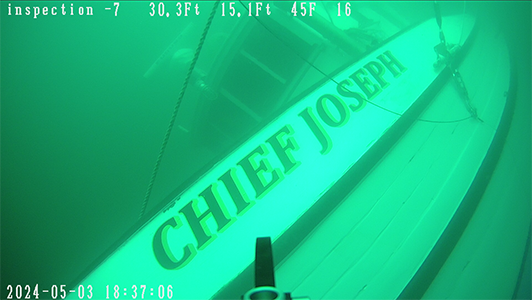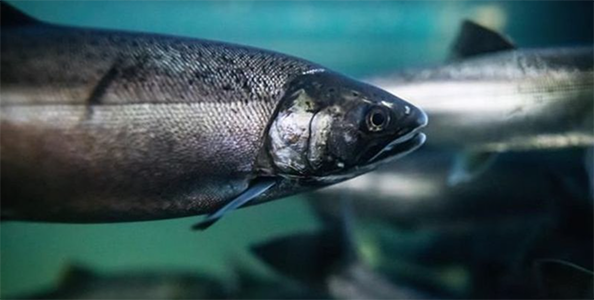||| FROM ALEX MCLEOD |||
The question arises, again, after the County Council’s decision to halt the Killebrew Lake Road project a little less than three weeks before it was to begin and less than a month after it was publicly announced. The Council’s special meeting Tuesday was set the same day Wolf published a full-throated defense of the project. Her piece was in response to well-reasoned opposition from Killebrew Lake Road residents, who faced a several-months-long 9.7-mile detour beginning July 10.
It also was the same day theOrcasonian published a letter from Russel Barsh, director of an islands-based non-profit conservation and biology laboratory, who had participated on a U.S. Corps of Engineers’ study of the Killebrew culvert and stream. The study concluded there was no possibility of fish above a dam shoreward of the culvert. He and the residents expressed surprise that the county hadn’t talked to them before letting a contract for the work and only telling them it was about to happen on the last day of May.
All that was just last Sunday. Tuesday, the council voted to stop work on the project and eat whatever costs already had been incurred. The only council member to drag her feet was Wolf, who said she wanted to know before halting the project exactly how much it might cost the county.
Council member Jane Fuller, of Lopez, responded that the county manager, who couldn’t offer precise numbers because not all invoices were in hand, had told the council the amount was something the county could handle. She and council member Christine Minney, of San Juan Island, both said they would accept responsibility for what they called a mistake.
Wolf, notably, did not offer to take responsibility, even though the project at issue was one she had archly defended in the face of questions from her constituents. Nor did she attend Tuesday’s meeting in person, even though a bunch of her constituents did to ask for the halt.
Wolf’s behavior was reminiscent of her attempt less than a year ago to fire the longtime head of the county’s Land Bank when he wouldn’t accede to her demand to develop part of Orcas’s new Linwood Inn Land Bank acquisition for county-employee housing. It was an odd demand because it ran contrary to the Land Bank’s conservation rules and because the remote location, with no county infrastructure, was a questionable site for housing.
Wolf only relented, sort of, after getting the county manager to put together a “performance plan” for Bormann, to be revisited later. When Minney and Fuller accepted responsibility, they made a point of saying they weren’t looking to place blame though there’s clearly enough to go around.
First, the county marched ahead with planning for a new culvert after the previous one washed out at the beginning of February 2020, without talking to Barsh, who had been part of a Corps of Engineers study of the creek in 2004, or, it appears, anyone else on Orcas. The knowledge that “preserving” a trout run that no longer existed could have changed the county’s entire approach, including designing an elaborate, expensive culvert it thought would be needed to get the state Department of Fish and Wildlife’s approval, a move that would require closing the road for up to three months.
It seems obvious that none of the county engineers or its public-works department talked to anyone on Orcas who might have local knowledge of value to its planning, or researched the road’s culvert issues back 20 years. Among other things, that could have saved Kendra Smith, the county’s Environmental Stewardship Director, from bragging that the project was “a great example of the county’s commitment to environmental stewardship through thoughtful engineering.”
Maybe the lack of attention was due to the fact that most of the cost of the project was to be paid by the Federal Emergency Management Agency (FEMA). “Free” money frequently leads to both extravagance and lack of attention. But it doesn’t explain why the Killebrew Lake Road homeowners never were consulted.
And some blame — though Minney and Fuller avoided its mention — rests with Wolf. Orcas is her island. The people on Killebrew Lake Road are her constituents. A plan including a three-month road closure in summer and a difficult nine-plus-mile detour would seem like the kind of thing to get the local council member’s immediate attention, not her defensiveness when its lack of necessity, or purpose, became apparent.
Orcas voters may be wondering now about how smart it was to replace the steady, experienced hand of Rick Hughes with the heavy hand of Cindy Wolf. And who could blame them.









I miss Rick in there for just these reasons.
Without taking sides — and finding much to agree with in Alex’s broadside above — I think it’s important to remember that Rick dragged his feet for months in the face of clear support on Orcas for a moratorium on vacation rental permits (which opened the door to Wolf’s ascendance), and he essentially looked the other way while that defining, majestic, canopy-corridor of towering trees just south of the Exchange was mowed down, still waiting for re-beautification . . .
Alex,
Your letter is very well written. I could heard a loud ouch coming from the direction of Orcas from here on San Juan.
Thanks for your post!
Orcas clearly needs better leadership on the Council and I am hoping someone will step up for the next election. Cindy’s vendettas, poor analyses of issues and self righteous stances are alienating and not helpful to bettering the community. I hope Democrats will put forth a candidate with some previous related experience to governing and also someone willing to do the hard work of engaging with the legislature in Olympia to further islander concerns and needs.
I ran twice Orcas!!!
and I voted for you Mindy, twice, to no avail. Not impressed with Wolf at all; she needs to be unelected next time around. The fact that the county, or whoever, thought they could pull another one on us (the first was the cutting of those beautiful trees that Mathew alludes to above, which was done without our knowledge), is typical of government these days. Why can’t responsible people run for and get elected??? What is wrong with us as a species??? I have no answers but lots of questions.
Cindy Wolf was elected because she had a group of supporters that knew that she would attend to their agenda regarding Vacation Rentals if she was elected. She did exactly as instructed. Now she is in a position of establishing broader public policy and dealing with the daily needs of our county and everyone can now see that the emperor has no clothes. Thankfully, her seatmates on the Council have been able to keep the government train on the rails despite the many questionable comments and moves that she makes. We may well be just lucky enough to survive her tenure without any major legal issues.
While I agree with the gist of Amanda Azous’ comments about Cindy, I have an issue with her statement ” I hope Democrats will put forth a candidate with some previous related experience to governing and also someone willing to do the hard work of engaging with the legislature in Olympia to further islander concerns and needs.”
Our County Charter rules state that the County Council is supposed to be non partisan. We, residents of San Juan County need people to run who are cognizant of the problems we are facing with housing, the worst ferry service in decades, worker shortages (largely due to lack of access to affordable housing) a broken County Planning Department who struggles to sift through the complex myriad of land use regulations in order to approve applications. San Juan County and Washington are and have been politically weighted toward the democratic party for decades. It’s time to look to people and our own communities for leadership over party affiliation bias.
I agree with you Mike. Thanks for correcting me on the intended nonpartisan nature of the council.
Over and over again I see how female politicians are berated, especially those who challenge the current power structure. SJC wanted elected officials who would listen, would ask important questions, and would act in the best interest of ALL constituents, so we have elected Cindy and the first all female counsel ever. Obviously we are hoping for meaningful change. When I read this letter, it was disheartening to see so many misleading and factually incorrect statements. It leads me to believe this is not about Cindy at all, but about defending the ability to call the shots.
To quote Fredrick Douglas “Power concedes nothing without a demand. It never did and it never will. “